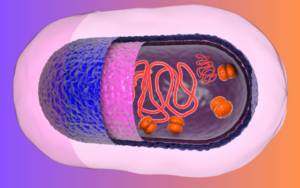In recent years, advances in genomics have shed light on the fascinating world of human genetic variation and its influence on drug metabolism and efficacy. This groundbreaking research has provided valuable insights into the individualized response to medications, leading to personalized medicine approaches. In this blog post, we will explore the implications of genetic variation in drug metabolism and efficacy in diverse populations, highlighting how understanding these factors can revolutionize healthcare and improve patient outcomes worldwide.
Genetic variation, the natural diversity present in the human genome, holds immense importance in shaping individual health outcomes and responses to various environmental factors. The study of genetic variation has become a focal point in medical research, as it unveils a deeper understanding of human biology and the way our bodies interact with medications and treatments. Within the context of drug metabolism and efficacy, genetic variation plays a pivotal role in determining how individuals process and respond to medications. Enzymes such as cytochrome P450 (CYP) family members, which are crucial for drug metabolism, can exhibit genetic variants that impact the rate and efficiency of drug clearance, potentially leading to varying therapeutic outcomes. Recognizing the significance of genetic variation in drug response opens the door to personalized medicine approaches, revolutionizing patient care.
Beyond its impact on drug metabolism, genetic variation has broader implications for human health and disease susceptibility. Certain genetic variants have been linked to an increased risk of developing specific medical conditions, while others provide protection against certain ailments. By studying genetic variation in diverse populations, researchers gain insights into the underlying mechanisms of diseases and can design more targeted preventive strategies and treatments. This understanding is particularly vital for populations historically underrepresented in medical research, ensuring that healthcare solutions are inclusive and effective for everyone.
Harnessing the potential of genetic variation in healthcare requires a collaborative effort between researchers, healthcare providers, and policymakers. Integrating genomic data into clinical practice will enable the identification of patients at higher risk for adverse drug reactions and empower physicians to make informed decisions about medication selection and dosing. Moreover, acknowledging the ethical considerations surrounding genetic testing and data privacy is crucial in building trust and encouraging patients to participate in genetic research. As our understanding of genetic variation continues to evolve, it holds the promise of reshaping the landscape of medicine, offering personalized and precise approaches to promote optimal health and well-being for all individuals.
Table of Contents
Here are the implications of genetic variation in drug metabolism and efficacy in diverse populations?
1. Genetic Variation and Drug Metabolism

Human genes can influence the way our bodies metabolize drugs, resulting in variations in drug response between individuals. The cytochrome P450 (CYP) family of enzymes, for example, plays a crucial role in drug metabolism, particularly in the liver. Genetic variations in these enzymes can lead to alterations in drug clearance rates, affecting drug levels in the bloodstream and ultimately impacting therapeutic outcomes.
Genetic variation’s influence on drug metabolism is a complex and dynamic field of study that continues to unravel with advancements in genomics and pharmacogenomics. The cytochrome P450 (CYP) enzymes, responsible for metabolizing a wide range of drugs, exhibit genetic variability across different populations. Certain genetic variants can lead to altered enzyme activity, affecting the rate at which drugs are broken down and cleared from the body. As a consequence, individuals with specific genetic profiles may experience either faster or slower drug metabolism, directly impacting drug efficacy and safety. This individualized response to medications highlights the importance of considering genetic variation in drug development and clinical practice to optimize treatment outcomes.
One of the key challenges in harnessing the potential of genetic variation in drug metabolism is the complexity and diversity of human genetic backgrounds. People from various ethnicities and geographic regions may possess unique genetic variations that influence drug metabolism differently. Consequently, medications that work effectively in one population may not be equally effective in another. To address this issue, researchers and pharmaceutical companies are recognizing the significance of diversity in clinical trials and drug testing. By including participants from diverse populations, studies can yield comprehensive data on drug responses, leading to the development of more inclusive and effective therapeutics.
The integration of pharmacogenomic data into routine clinical practice has the potential to revolutionize healthcare by enabling personalized treatment plans based on an individual’s genetic profile. In the future, patients may undergo genetic testing to identify specific variations in drug-metabolizing genes, allowing healthcare providers to tailor drug selection, dosage, and treatment schedules accordingly. This precision medicine approach not only enhances patient outcomes but also reduces the likelihood of adverse drug reactions and unnecessary side effects. However, as we delve deeper into the realm of genetic variation and drug metabolism, it remains essential to strike a balance between harnessing the potential benefits and ensuring ethical considerations, such as patient consent, privacy, and non-discrimination, are upheld throughout the process2.
2. Impact on Drug Efficacy

One of the significant implications of genetic variation in drug metabolism is its effect on drug efficacy. Certain populations may possess genetic variants that render specific drugs less effective or more potent. Consequently, patients may require adjusted dosages or alternative medications to achieve the desired therapeutic effect.
Genetic variation plays a pivotal role in determining the impact on drug efficacy, as it can significantly influence how individuals respond to medications. The presence of specific genetic variants can lead to variations in drug metabolism and clearance rates, affecting the concentration of active drug compounds in the bloodstream. Consequently, some individuals may experience enhanced drug efficacy, while others may have reduced responses to certain medications. By understanding these genetic differences, healthcare providers can tailor treatment plans to optimize drug efficacy for each patient, ensuring that the right dosage and medication are prescribed to achieve the desired therapeutic effect.
Furthermore, the influence of genetic variation on drug efficacy becomes even more pronounced when considering diverse populations. Different ethnic groups may carry distinct genetic profiles, which can lead to varying responses to medications. For instance, certain drugs that exhibit high efficacy in one population may prove less effective or even cause adverse reactions in another. This underscores the importance of embracing diversity in clinical trials and research to ensure that drug development is comprehensive and inclusive. By accounting for genetic variation among diverse populations, healthcare professionals can implement personalized medicine approaches that enhance drug efficacy while minimizing potential risks.
As pharmacogenomics research continues to advance, the ability to predict drug responses based on an individual’s genetic makeup holds great promise. By identifying genetic markers associated with drug efficacy, researchers and clinicians can make informed decisions regarding treatment selection and dosage adjustments. As a result, the era of precision medicine emerges, where therapeutic interventions are tailored to the unique genetic characteristics of each patient. This personalized approach not only optimizes drug efficacy but also reduces the likelihood of adverse reactions, revolutionizing the way healthcare is delivered and paving the way for more efficient and targeted treatments in the future.
3. Pharmacogenomics and Precision Medicine

Pharmacogenomics, the study of how genes influence drug response, has opened new avenues for precision medicine. By identifying genetic markers associated with drug metabolism, healthcare providers can tailor treatment plans based on an individual’s genetic makeup. This personalized approach minimizes adverse drug reactions and enhances treatment efficacy, promoting better patient outcomes.
4. Diversity in Drug Response

Genetic variation is not evenly distributed among different populations, leading to varying drug responses across ethnic groups. For example, studies have shown that certain medications may be more effective or have different side effects in individuals of African, Asian, or European descent. Embracing diversity in clinical trials and research becomes critical to ensuring the safety and efficacy of medications across all populations.
5. Addressing Health Disparities

Understanding genetic variation in drug metabolism is pivotal in addressing health disparities. Historically, clinical trials have been predominantly conducted on individuals of European ancestry, leading to a lack of representation of diverse populations. Consequently, drugs may not be optimized for everyone, resulting in unequal treatment outcomes. By embracing genetic diversity in research and drug development, we can bridge this gap and ensure equitable healthcare for all.
6. Ethical Considerations
While leveraging genetic information for personalized medicine offers tremendous potential, it also raises ethical considerations. Protecting patient privacy and ensuring informed consent when using genetic data is of utmost importance. Moreover, there is a need for robust guidelines and regulations to govern the responsible use of genetic information to avoid discrimination and stigmatization.
The implications of genetic variation in drug metabolism and efficacy are profound and have the potential to revolutionize the field of medicine. As we advance in the understanding of genomics and pharmacogenomics, we move closer to a future where treatments are tailored to the individual, optimizing drug response and reducing adverse reactions. Embracing diversity in research and healthcare will be crucial in harnessing the full potential of precision medicine and ensuring equitable treatment outcomes for diverse populations worldwide. By balancing scientific progress with ethical considerations, we can pave the way for a more personalized, effective, and inclusive healthcare system.




